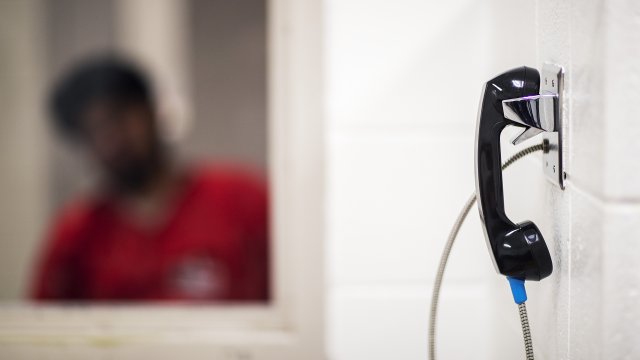ICE has started releasing some immigrants it deems vulnerable to the coronavirus. But around 34,000 individuals remain detained.
Newsy talked to two asylum-seekers with asthma who have been in ICE detention for months. They're both held at a private facility near Houston, the Joe Corley Detention Facility. Their names have been changed to protect them from retaliation.
"We know that the virus attacks people who have lower defense, especially those with respiratory issues like asthma. I'm afraid of dying in here," said Daniel, a Venezuelan asylum-seeker.
"We're 30 people in one room. One small room. They don't give us soap, just a little bit of shampoo. And if you want more you have to buy it," he added.
Chris, a Cuban asylum-seeker, said: "We asked our officer about what kind of precautions are in place to protect us. But they tell us there’s no use to whining."
Chris and Daniel are political dissidents fleeing dictatorships in Cuba and Venezuela.
Like the majority of ICE detainees around the country, they don't have criminal convictions. ICE has the authority to release them on parole. It can also use ankle bracelets or other monitoring widgets to ensure they show up to their next asylum hearing.
"In a situation where we're facing an extremely virulent, extremely aggressive respiratory infection, something like asthma can be the difference between life and death. We have to get these people out," said their attorney, Michael Groves, who's a staff lawyer at Las Americas Immigrant Advocacy Center.
ICE says it shrunk its detained population by more than 4,000 people over the last month. On Tuesday, the agency announced it had identified nearly 600 detainees who are over 60 or pregnant and released 160 of them. The agency is also evaluating "other potentially vulnerable populations." As of Thursday, ICE reported nearly 40 detainees in 12 different facilities have tested positive for the virus.
Daniel said: "What I try to do is stay in bed, not get close to anyone, wash my hands, even if it's just with water. I hope and pray that the virus doesn't come here."


